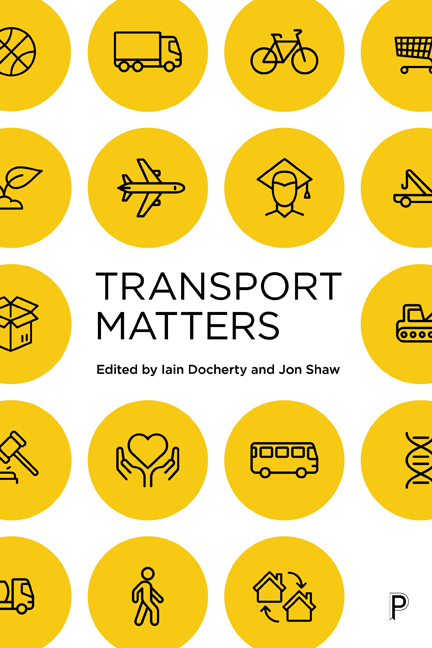5 - Influencing Travel Behaviour
Published online by Cambridge University Press: 03 March 2021
Summary
Introduction
It's only necessary to take a short trip in an urban area to see how encouraging certain types of travel behaviour has become highly prevalent. Advertising boards exhort us to use ‘park and ride’, roadside signs encourage car sharing, bus advertisements promote the latest public transport app, while local and national government campaigns promote the health and wellbeing benefits of more walking and cycling. All of these interventions in our travel experience are now quite routine. Yet this has not always been the case, and the promotion of behavioural change as a viable strategy to meet particular policy goals (for example, reducing carbon emissions, cutting local air pollution, reducing congestion and promoting healthy lifestyles) is a relatively new entrant into the policy toolkits of central and local government. In this chapter, we explore why and how influencing behaviour is regarded as so critical for managing transport flows and spaces. In particular, we highlight the ways in which the rise of behavioural change as a policy tool can be linked to broader and underpinning shifts in the development of a neo-liberal political economy. We also highlight how behavioural change neatly fits with the progressive upholding of individual choice as the marker of a free market, consumer-based society – a political philosophy that necessitates exhortation and persuasion as devices of government, rather than public ownership and tight regulation.
Our chapter is divided into three main sections. First, we examine the ways in which transport researchers and other social scientists have researched travel behaviour and the underpinning theories and methods they have adopted. As with other areas of transport and travel research, different theoretical frameworks have led to distinct and often contrasting understandings of behaviour and we explore the ways in which both psychological and sociological framings of travel behaviour can lead to important, but very different, insights into what influences travel decision making. Second, we place these intellectual trajectories into a policy context by examining the ways in which the social science of (travel) behaviour has been mobilised to meet a range of policy goals.
- Type
- Chapter
- Information
- Transport Matters , pp. 107 - 130Publisher: Bristol University PressPrint publication year: 2019

